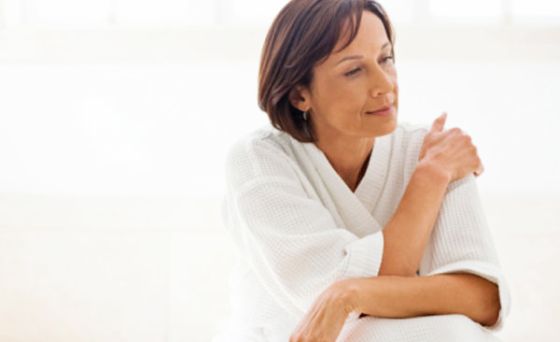Discover the Truth about Post Menopause Supplements
If your period has stopped for a minimum of 12 months, you officially enter your post menopause. My article sheds light on what your body experiences in this special period, and what post menopause supplements are all about.

Discover the Truth about Post Menopause Supplements
Contents
Post menopause– When Is It?
Post-menopausal women can still experience hormone-related symptoms.
Most women enter post menopause naturally. The average age is around 51. After the end of menstruation, post menopause follows.
However, there are other reasons for women to enter post menopause at an earlier age. For example, some are considered post-menopausal because their ovaries have been removed surgically.
If your periods have stopped for a whole year either because of chemotherapy or hormone replacement therapy, you are not necessarily post-menopausal. In these cases, you can have your doctor measure the follicle stimulating hormone (FSH) level to confirm if you are in post menopause.
What Changes Should I Expect During Post Menopause?
Will you still have to deal with the symptoms after your enter post menopause? Most probably.
The fact is, the reproductive hormone levels continue to drop during post menopause, and can fluctuate for a little longer. Any menopausal symptoms you experience may not stop right away. They may go on for some time, even a few years before disappearing completely.
As each woman is a unique individual, post-menopausal experience can vary. Some women are free from hot flashes, while others continue to have night sweats into their 70s.
Other common symptoms of post-menopausal women
> Vaginal Dryness And Itchiness
This condition affects 80 percent of women in perimenopause, and up to 50 percent of post-menopausal women. If you are suffering from this problem, you are one of the millions of women that are troubled by it.
Estrogen, the female hormone, produces lubrication to keep the vagina moist. When women enter post menopause, estrogen level can plummet.
You may also experience vaginal itchiness as a side effect, which can be embarrassing when you are out and about. Your normal life may become disturbed as a result and you may feel anxious if the vaginal itchiness is severe.
If you have a partner, vaginal dryness can cause painful intercourse, a loss of libido and low self-esteem.
TIPS: Try a daily vaginal massage using extra virgin olive oil. Combine a healthy diet with regular exercise. Use a natural supplement to rebalance your hormone levels.
> Urethritis And Cystitis
Urethritis and cystitis are common among post-menopausal women. You may know their name by ‘bladder infection’.
Symptoms of these conditions are easy to spot – the frequent urge to urinate, which can be accompanied by lower back pain and a burning sensation.
TIPS: Never hold your urine. Drink plenty of water to help get rid of waste from your body. For natural treatment, vitamin C and cranberry juice will help relieve your bladder infection.
> Osteoporosis
Osteoporosis is one of the most serious health problems in post-menopausal women. It often leads to fractures and bone pain.
1 out of every 2 women over age 50 will have an osteoporosis-related fracture in her remaining lifetime.
Hormone changes are the main cause of this condition. The bone mass is lost rapidly with the onset of menopause. Other factors include lack of exercises, deficiencies of certain nutrients and poor diet patterns.
TIPS: Modify your life style accordingly. Limit use of tobacco, caffeine, alcohol and refined foods. Incorporate exercise in your daily routine.
At least 22 nutrients can benefit bone health. Take all-in-one post menopause supplements to provide the nutrients your body needs. Quality supplements can go a long way in preventing and treating your osteoporosis.
> Facial Hair
Have you noticed the growth of facial hair when you enter post menopause?
The reason for this is imbalanced hormones. After menopause, your body produces more androgen (testosterone, the male hormone) than estrogen (the female hormone).
TIPS: Eat a balanced diet – proteins, complex carbohydrates, fresh fruits and vegetables. Balancing your hormones with a multivitamin to make up nutritional gaps in your body.
If facial hair is bothersome for you, there are methods to remove the facial hair: Waxing, Laser hair removal, Intense Pulsed Light and electrolysis.
> Loss Of Libido
Post menopause does not mean the end of your sex life. In fact, regular sex can make you healthier, happier and live longer. Sexual activities can also help keep your vagina moist and healthy.
However, hormonal fluctuations may decrease your desire to have sex. Your partner may not be aware of the female problems, which can even put a strain in the relationship.
TIPS: Talk with your partner about your physical discomforts. Eat well. Balanced diets can make a difference to post-menopausal women’s physical and mental health. Exercise will increase your energy.



